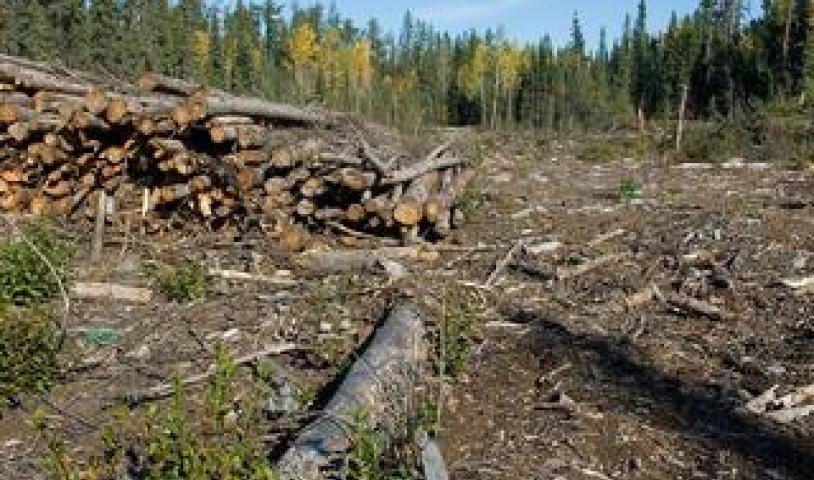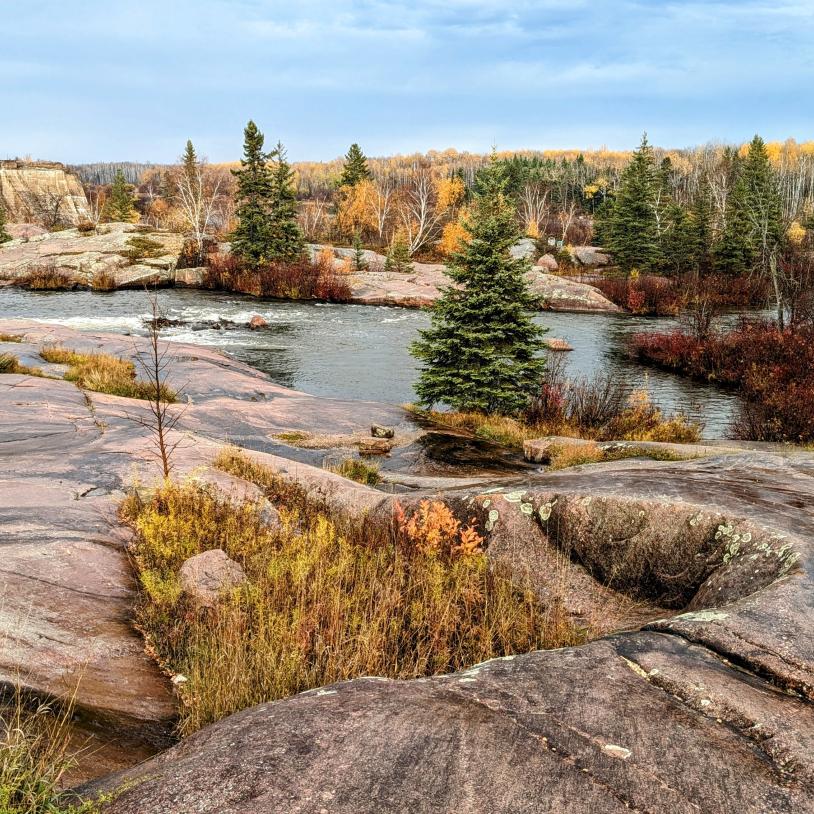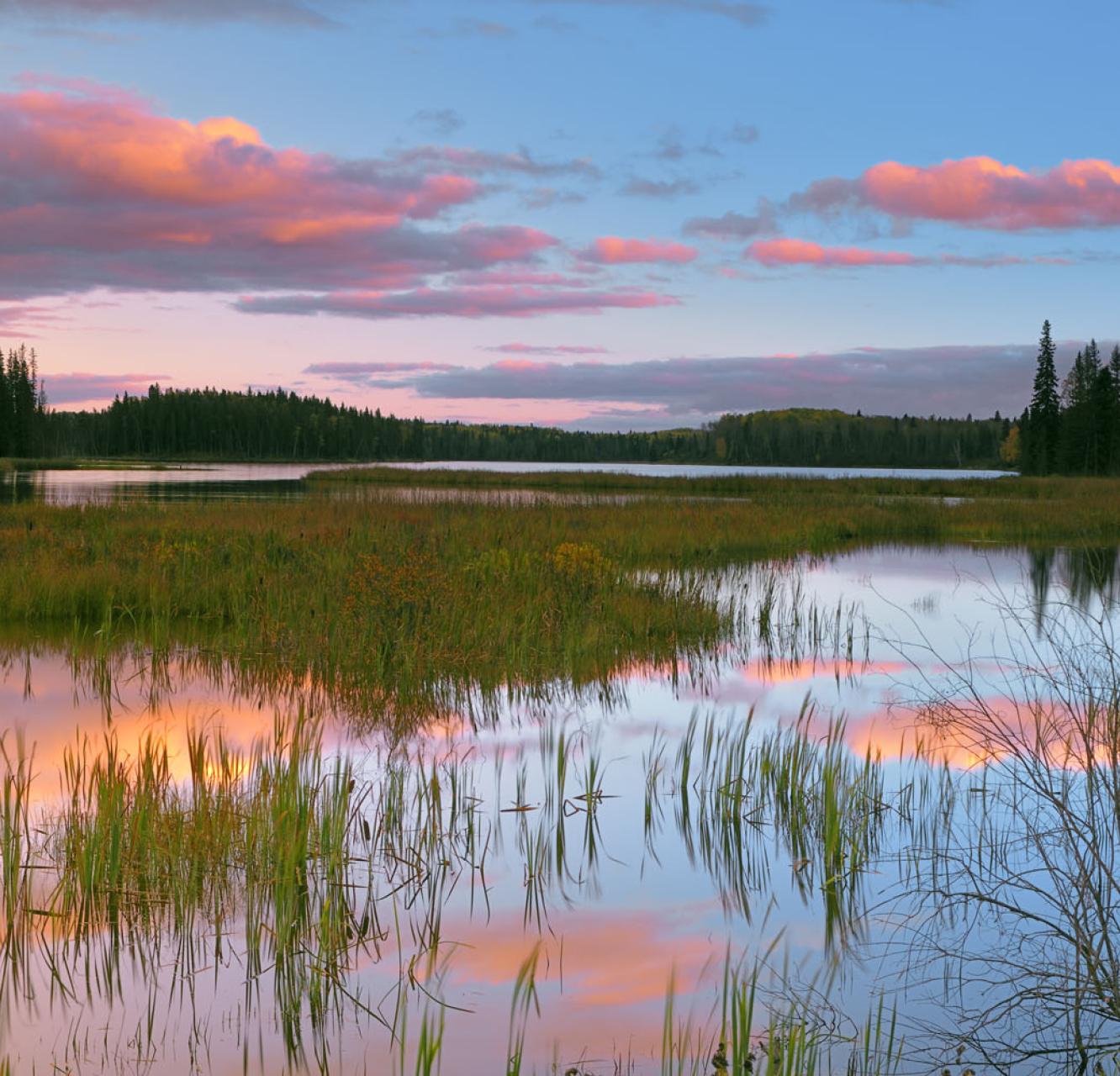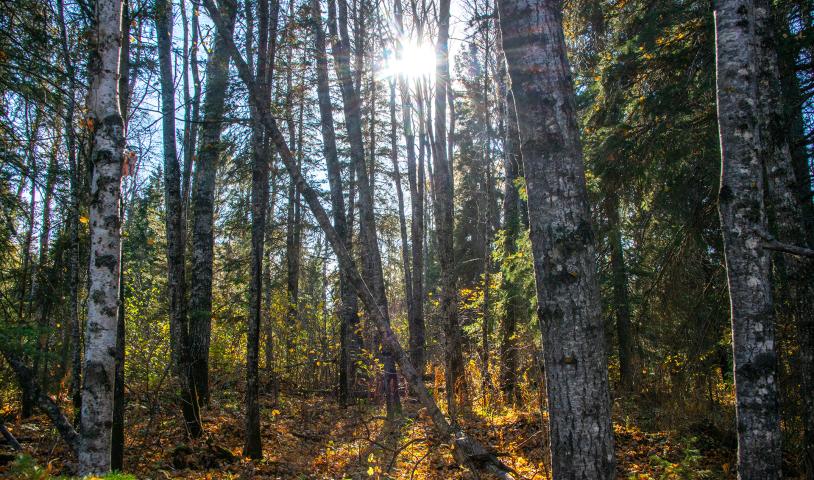Enviro‑legal battle begins over logging road
Wednesday, October 12, 2011
Wilderness Committee takes Tolko to court over logging road in park
Environmentalists were in a Manitoba courtroom on Tuesday, attempting to stop forestry company Tolko from continuing to build a northern logging road that is believed to be threatening woodland caribou populations.
The Wilderness Committee is using a rarely used legal tool — it is asking a judge to clarify the rights granted to Tolko to build the controversial Dickstone Road that cuts straight through Grass River Provincial Park near Flin Flon, Man.
The rights are being legally questioned because the province passed a law two years ago that bans logging in provincial parks.
"We're asking a judge to look at this legislation as it was written to determine if a logging road is considered logging," Eric Reder, a spokesman for The Wilderness Committee, said outside court.
If the judge rules the right to build the road was not legal, Tolko may have to cancel construction of its logging road, said Reder.
Group fought for logging ban
The non-profit advocacy group had campaigned for years to get the provincial park logging ban, signing up more than 20,000 Manitoba signatures in support.
When the ban passed in 2009, both the group and the government heralded the move as a "historic step" forward in preserving the environment.
However, Tolko was later granted a licence to build the logging road, and construction began in the spring of 2011.
The province declined to comment for this story, but a lawyer for the government told the court that Tolko's logging road project is lawful because the fallen trees for the road are not technically for commercial purposes.
"The only timber that's getting cut down is what's needed for the road — they are not for sale," lawyer Gord Hannon said to the judge.
But the lawyer representing The Wilderness Committee disputed that argument.
"What could be more commercial than the building of a logging road for accessing a logging area … to allow a logging company to increase its efficiency and profits?" David Newman asked in court.
Reder said scientists have concluded that major "linear disturbances" to the forest, such as the logging road, are harmful to woodland caribou habitats.
Impacts on caribou feared
The corridors provide a super-highway of sorts for wolves to prey on caribou, he said.
"So putting this road through one of the most sensitive areas of Grass River Provincial Park will have a tremendous impact on woodland caribou," said Reder.
Tolko wants the road to access logging areas north of the protected park, and to truck the timber back south through the park and onward to its mill in The Pas.
The forestry company has long said the logging road cuts their hauling time by four hours, ensuring its profitability.
When the province passed its 2009 park logging ban, Tolko and Tembec were given $3 million in compensation for lost forestry opportunities. But soon after that, Tembec closed its Pine Falls operations.
Newman, a former Manitoba PC MLA who served as minister of northern affairs between 1997 and 1999, said the legal proceeding that was launched on Tuesday is a first of its kind for an environmental legal battle in the province.
The case is dependant on a rarely used Court of Queen's Bench rule that allows for a judge to determine the rights that depend on the interpretation of a statute. The case is still being considered, and it may take weeks for a conclusion to be reached.
- Find the article online to watch the video here






